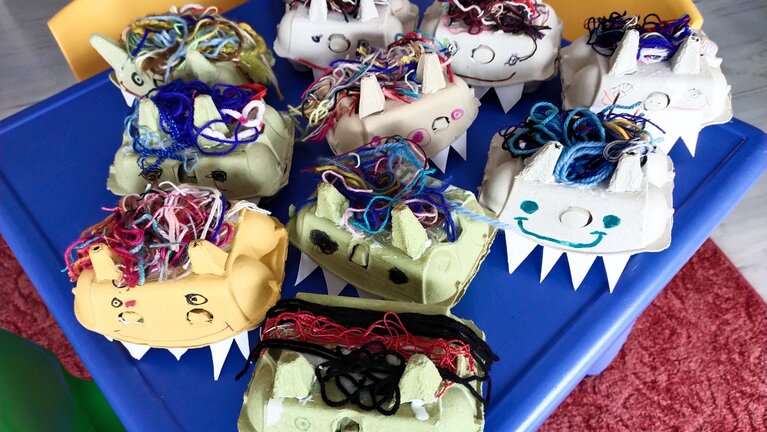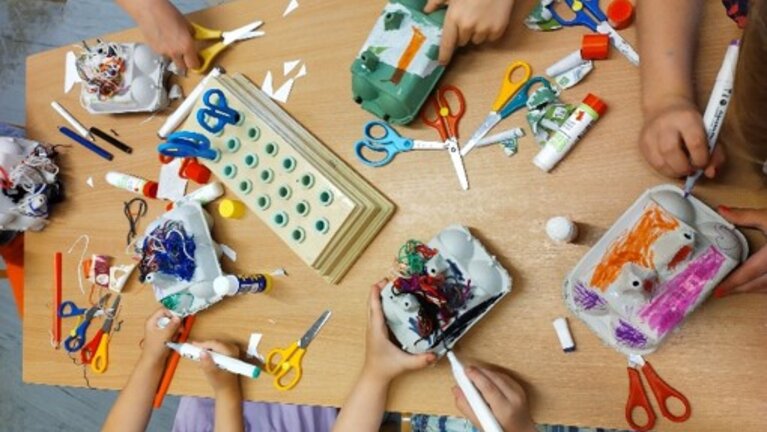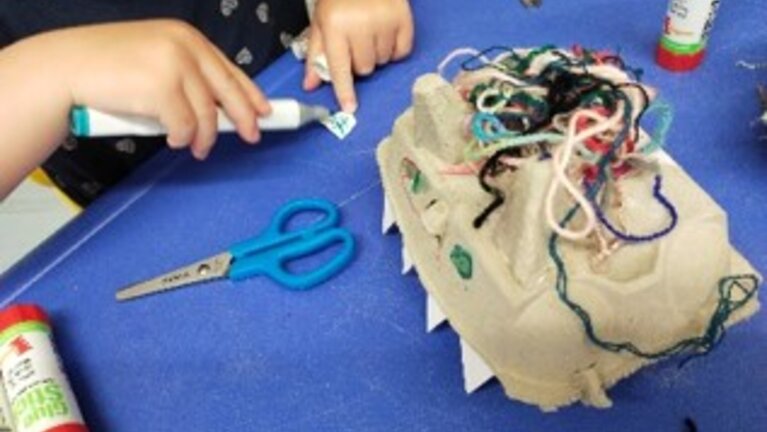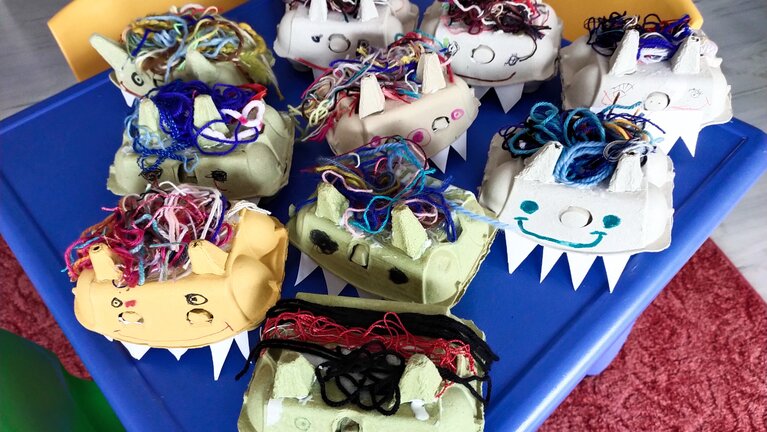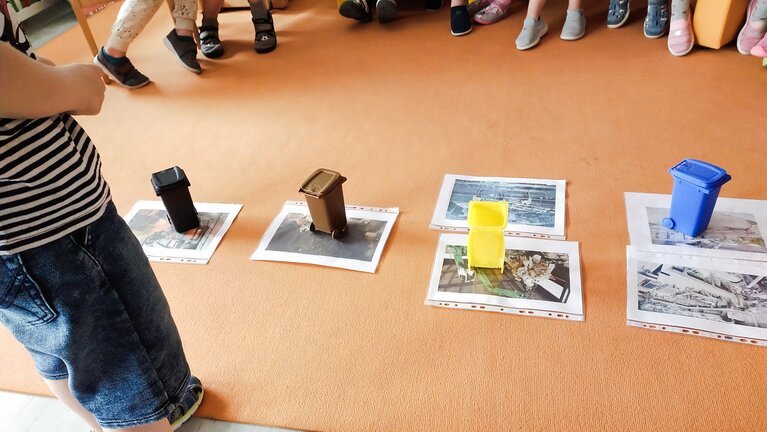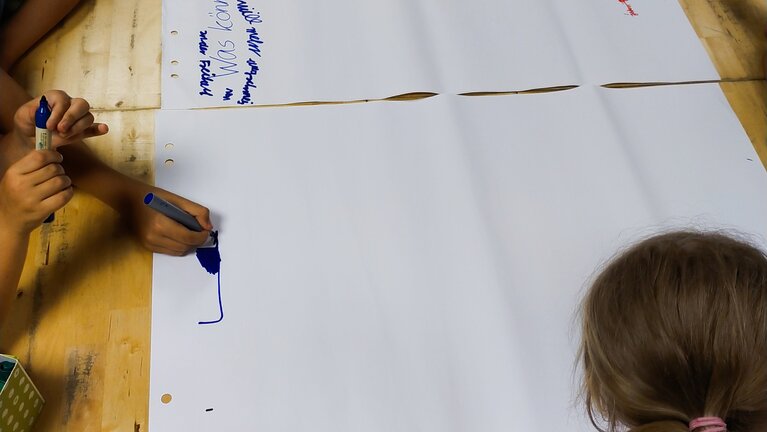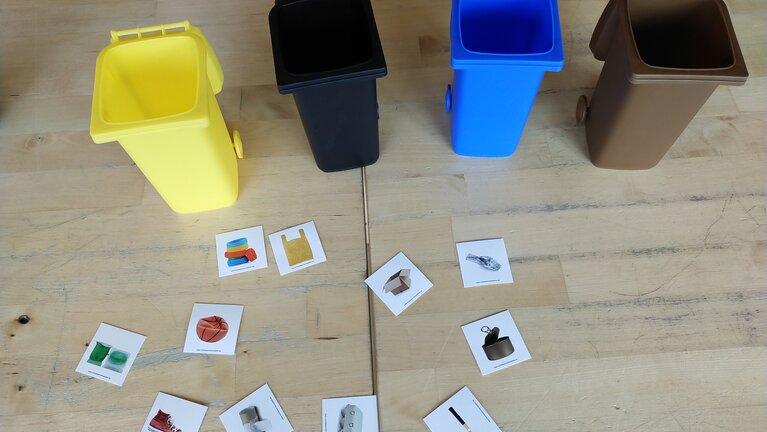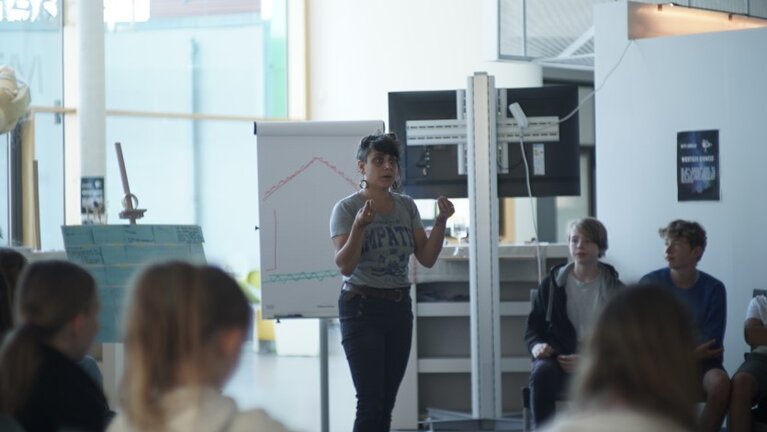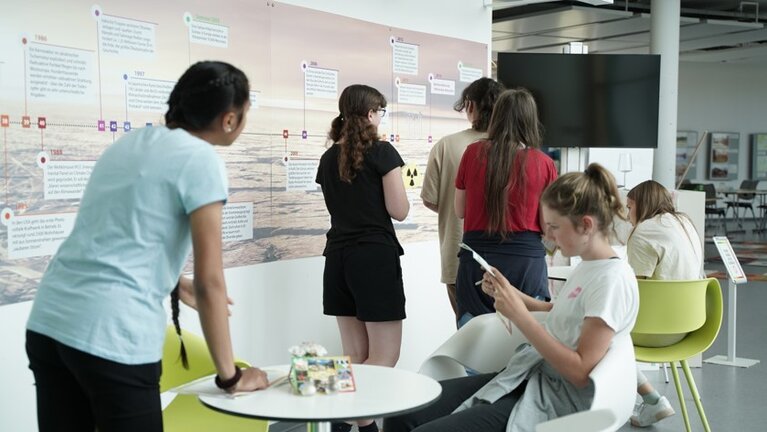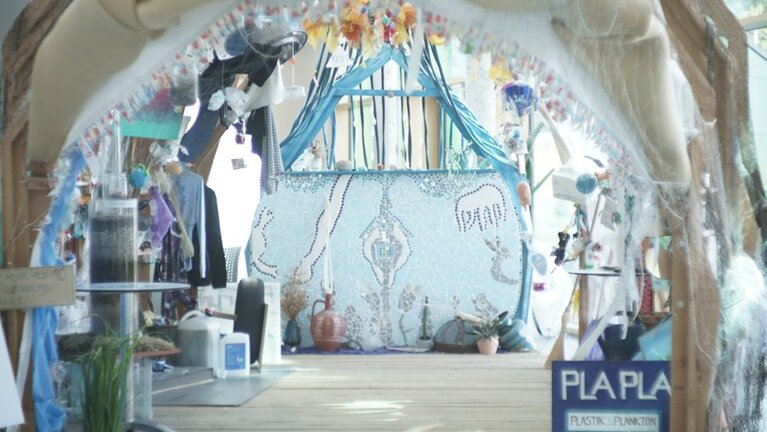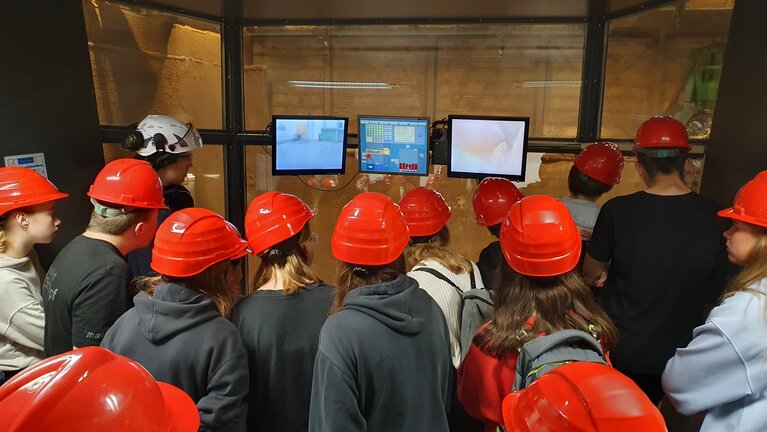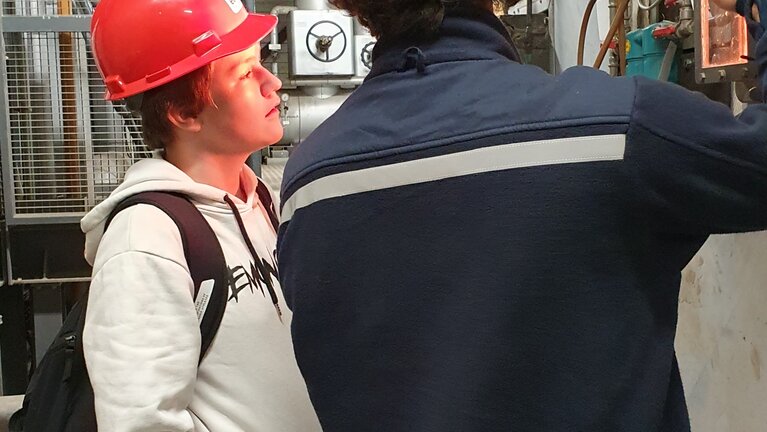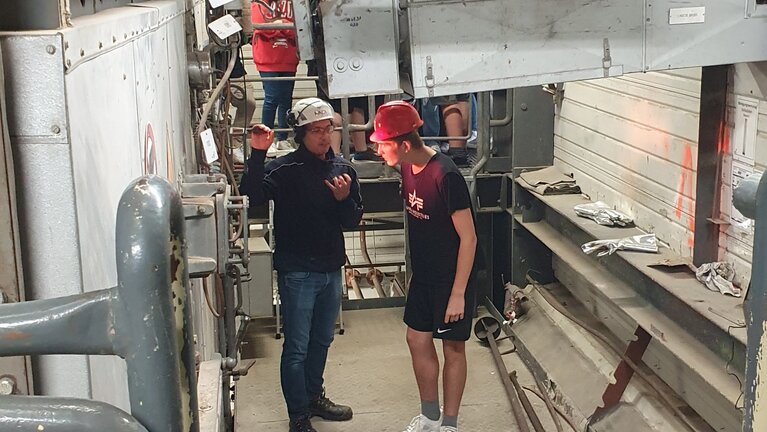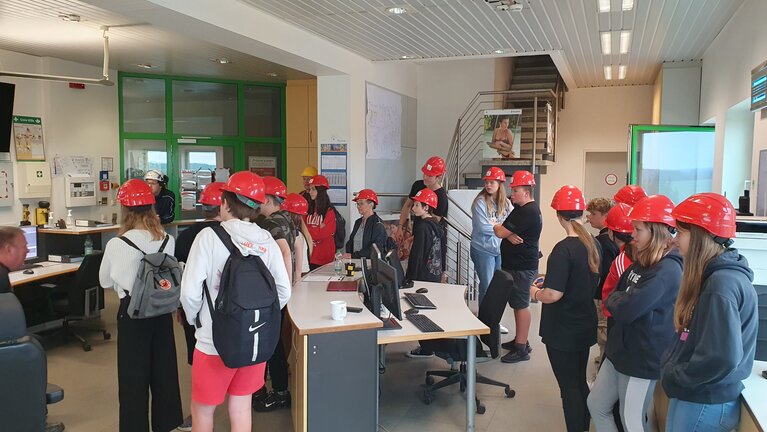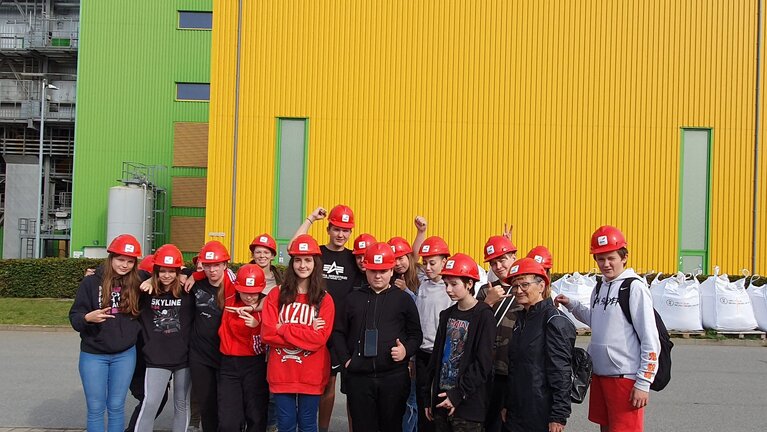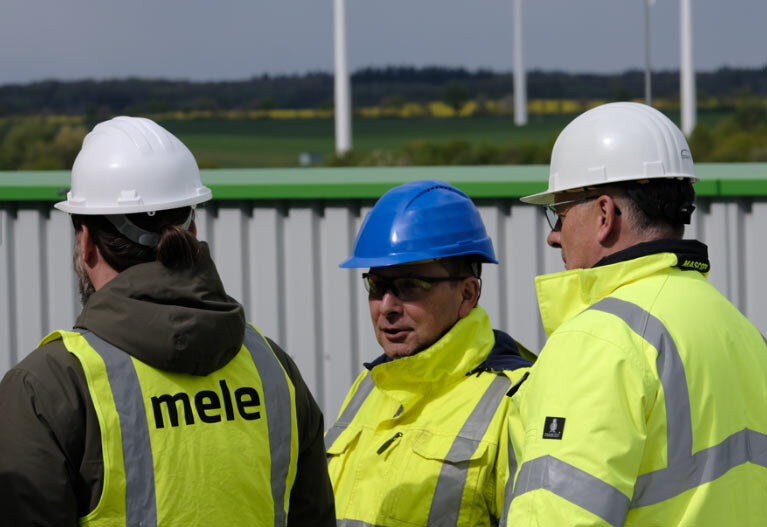After the concept was created in February 2023, the project partners enviMV, the State Centre for Renewable Energies M-V (Leea) and Unsere kleine Welt organised several workshops and pilot project days in the Mecklenburg Lake District.
One of these project days took place at the Sonnenschein daycare centre in Dargun, in which five kindergarten groups, two crèche groups and 17 educators took part. The focus was on sensitising the children to the issues of waste generation and littering, introducing them to the principle of waste separation and providing them with basic knowledge on the subject. At the Spatzenschule in Neukalen, Ms Beugel and Ms Weingärtner carried out another pilot project day on the same topics, but using different educational methods.
Two further practical days were held with sixth formers from the Protestant school in Neustrelitz in the adventure world of the regional centre. As an introduction, the pupils learnt about the 17 Sustainable Development Goals (SDGs) in conjunction with a systemic approach based on the Stockholm Resilience Centre's ‘Wedding Cake’ model. They learnt how fundamental ecological, social and economic relationships influence our actions. At various stations, they deepened their knowledge of plastic, microplastics and possible alternatives. With the help of experiments, short films, games and a guided tour through the forest, the pupils gained an insight into the problem of plastic waste and its impact on the environment. Finally, the participants discussed how the topic could be further anchored in the school.
Another pilot practical day took place in cooperation with the Reuterstadt comprehensive school in Stavenhagen and enviMV at the nearby eew thermal waste utilisation plant. After receiving a safety briefing from the power plant staff, the pupils were given an introduction to the topics of waste streams and thermal waste utilisation. During a subsequent tour of the power plant, the pupils were shown clearly what types of waste are delivered to the plant and are thermally utilised there. They also learnt that this process not only safely disposes of hazardous waste, but also generates energy in the form of electricity and steam, which benefits the surrounding households and businesses.
A particular highlight for the pupils was the view from the crane pulpit into the fuel bunker, in which around 150,000 tonnes of waste are temporarily stored every year, as well as the insight into the incinerator, in which the waste is burned at temperatures of at least 850°C.
The workshops and pilot project days informed and sensitised children of nursery, kindergarten and primary school age about the topic of waste and waste separation in a playful and vivid way.

